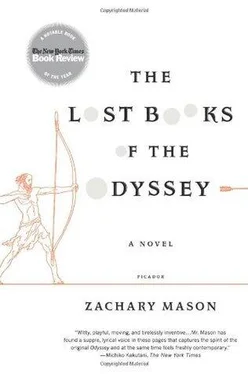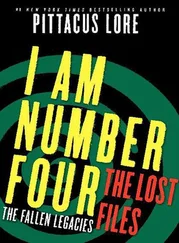The Iliad and the Odyssey have sometimes, through authorial and managerial oversights, become available to their protagonists. Surprisingly, this has had no impact on the action or the outcome. Agamemnon is too obstinate to change his mind and anyway never believes what he reads. Achilles flips through the Iliad and shrugs. Priam makes sacrifices to the nonplussed gods and anyway thinks that he is above prophecy (recall Cassandra). Perhaps there were once characters who read the book with dawning apprehension and fled that very hour, finding refuge in the hills, never again to meddle in the affairs of cities and gods, but if ever there were they are long gone now.
In time they came to Troy and there was Achilles, bright as gold and full of life, leaping from his ship’s prow, the first to set foot on Asian soil. The Ithacans arrived and gathered around Odysseus, asking him where he had gone and why he had left his own ship and taken a berth with Agamemnon. He had liked most and mourned all. They asked him what moved him so — it had been just two weeks since they last had seen him. Odysseus said he had seen by signs and portents that it would be a long war.
Everything fell out as before. In the first year Achilles fought a Trojan champion who was proof against blades and stones and strangled him with his helmet strap. In the second year Hector led an attack on the Greek camp and killed Agamemnon’s younger son. In the third year the Amazons fought alongside the Trojans and slaughtered many Greeks with javelins. And so on — as though choreographed, the Greeks attacked the city and arrows and death found their appointed marks. Odysseus knew who was going to die, so he was able to say his goodbyes. Men said he was bad luck.
He saw Athena from time to time, though she was silent. Sometimes she looked at him with pity. Other times her face was unreadable.
He looked at his image in polished blades and water. He could have been a battle-hardened forty or a weathered twenty. He thought of stealing a ship or wading into the sea with stones in his pockets, but for his men’s sake he stayed, even though he thought they were illusions, or a dream.
The time came for him to steal into the city and see Helen. They spoke as they had before and as he knew they must. He had forgotten most of their conversation so he improvised. He thought he saw recognition in her eyes, and, as he left, their hands touched, a novelty.
In due time he proposed the ruse of the horse. He sat in its belly listening to the Trojans debate whether to burn it or push it into the sea, to Cassandra’s weeping, to Priam ordering it brought within the city walls. That night he and his men crept out of the horse, opened the gates and set fire to the city. By midnight his face was black and his sword-arm was red to the elbow. He saw fallen enemies die again, heard old screams again, saw a tower he had burned to ashes risen in flame. In the palace he found Helen brushing her hair. Without looking away from her mirror she told him that ten years ago she had been dragged back to Menelaus’s house and thrown into their old bedroom as half a wife and half a slave. The next morning she opened the door to a tap-tapping and there was Paris, *her lover, long dead and turned to ashes and now shyly beckoning. Helen hid her golden hair under Odysseus’s hood and that hour they fled the city and went out of Troy’s history.
In a fisherman’s hut Odysseus held her and told her about the book. He supposed they would have ten years, then they would see. Athena never spoke to him again.
*Odysseus did not want to leave Ithaca to flight at Troy, so he feigned madness in hopes that Agamemnon would go away. Palamedes defeated his ruse by threatening the infant Telemachus with a sword — Odysseus moved to defend his son and thereby revealed his rationality.
*Helen’s husband and kidnapper, the instigator of the Trojan War.
We forget ourselves in company. When I led my men into the Trojan ranks or through haunted unmapped islands I wore a dauntless mask, neither smiling nor frowning, always taking the next step, whether toward flanking the enemy’s archers or improvising a sail from our ruined stores or getting us back to the ship just ahead of our pursuers. The essence of that mask was pride — my men loved me not for being right but for my intransigence, instant decisions and intolerance of any slight. It made me a monster of ego, which was wearisome, but while they were in my charge I had no choice.
Now it has been years since I have been lost at sea and they have been lost for good. With no uncertain young faces looking to me I have become contemplative, used to thinking things through in my own good time. And so, as the Phoenician ship touches at Ithaca I neither weep nor throw myself onto the shingle to kiss my native ground. Instead of dressing myself in finery and going to my old hall with arms open and a foolish smile on my face, I put on a worn old brown cloak and sling a peddler’s pack over my shoulder, the better to have a quiet look around. Penelope is more than an ordinary woman but many outrages can happen in twenty years. Still, I am prepared to forgive — all that matters to me is that my house is strong and, above all, that Telemachus, my son, flourishes. As I walk away up the beach and the wind fills the Phoenician’s sails the captain shouts goodbye in his strange patois and promises to call again in a month’s time.
I go through the forest to the old highway and head toward town with my eyes open. Peasants and merchants walk past, ignoring me. They look well fed but keep their eyes on the road. I come to town and see smoke rising from every chimney and houses in good repair, whitewashed and clean. It is, however, very quiet — no doors slamming, mothers calling or children shrieking. My conviction that all is not well is cemented at the fountain, where the women get their water and stride quickly home without so much as passing the time of day. I sit down on the low wall of a corral to think about my people, who have become as timid as the knot of cattle lowing nervously behind me.
I am reminded of the village of my father-in-law Autolykos. *Nevertheless, I collect myself and as it gets dark go toward what was once my hall, guided by the red torchlight glowing from its high windows. With the ham of my fist I pound on the gate—“Open up, good people! It is Nohbdy the peddler come to deal — let me in and show me some hospitality!” The door is opened by a greasy young man with a glazed expression. His bearing suggests breeding but he barely acknowledges me, gesturing at me to follow him down the hall with a loose flick of his wrist.
We pass through the clean-swept courtyard, where cracked bones are piled against the walls. I shape my face into a mask combining greed and cringing humility and prepare myself for what I now know I will find in the great hall. On my throne Penelope lounges, taller than I remember, her presence filling the room. Young gentlemen orbit around her with vacant faces and deferential postures, lighting up when she notices them. There is no furniture except the throne and piles of matted furs strewn on the ground. It smells musky, like an animal’s den.
Penelope toys with the black hair of a lanky young man who lounges at her feet, his arm entangled in her legs, and studies me balefully while the men study her. She orders a maid to bring me meat and wine, and as I eat I say, “I have news that you will rejoice to hear, dread queen. Not a day’s journey behind me is Odysseus Laertides himself, your husband and king, returned alive after many years of suffering. His Lordship did me the honor of speaking with me and entrusted me with a message for you — he says that the first thing he intends to do upon getting home is move his bed out of the bedroom for airing. That was all of his message, and I swear to you every word is true, or I am not Nohbdy.”
Читать дальше












